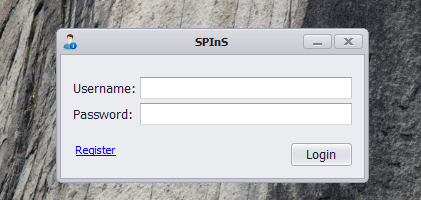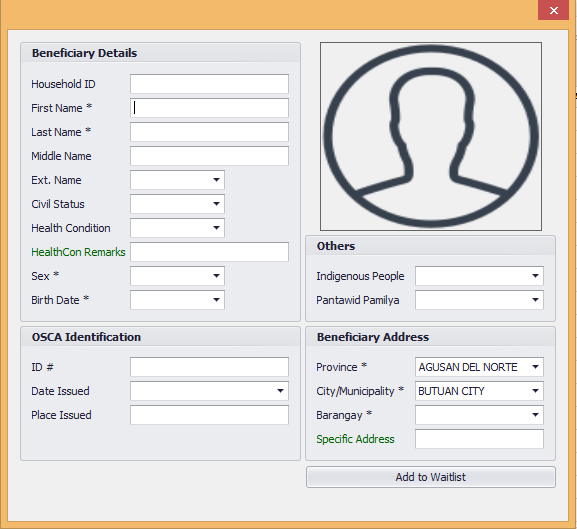Name of the Organization
Department of Social Welfare and Development
Name of the Office/Unit that leads the implementation of this best practice entry
Caraga Social Pension for Indigent Senior Citizens
Focus Area of the Best Practice
Digitization and New Technologies
Date the best practice was first implemented
01 January 2016 – up to the present
Summary of the Best Practice
The Department of Social Welfare and Development (DSWD) Field Office (FO) in Caraga is using technology to make the disbursement of social pension of indigent senior citizens easier. Pertinent information about the social pension beneficiary–from personal details, inclusions, and exclusions to the program, to their payrolls and validations–are now digitized for easy tracking.

The information system aims to:
- Establish accurate payroll by eliminating double or multiple entries of names of the beneficiaries;
- Generate efficient physical and financial reports; and
- Promote transparency, especially on the delivery of stipends.
It has the following key features:
- Biometric registration and verification (usage discontinued due to the pandemic)
- Cross-matching of names not limited to the exact spelling
- Data logs about the senior citizen/beneficiary
Currently, it serves as the very core of the program implementation as the data/reports to the DSWD Central Office or any other concerned offices are from the system.
The Challenge
The social pension program for indigent senior citizens is an important program but its implementation has faced a lot of challenges, including data accuracy, payment disbursement, report generation, and stakeholder engagement.
Data Accuracy
- There was a limited number of technical working staff of the Regional Social Pension Unit (RSPU) to manage the data of the increasing number of beneficiaries from 9,375 in CY 2011 to 62,235 in CY 2015.
- The accurate data reflected in the payroll have been compromised because of the manual checking of the reports/ data from local government units (LGUs), most especially on the checking of complete names, birthday, age, sex, address, etc., on the submitted waitlisted and delisted report by the LGUs, which resulted in multiple entries of names across the region.
Payment
- Due to inaccurate data, double or multiple payments for one beneficiary were reported.
- Paymasters found it hard to verify and identify the paid beneficiaries from one area to another.
- Considering that no device was installed to identify and verify the true identity of the beneficiaries, there were instances when somebody holding the same ID claimed the stipend.
Report generation
- It took several hours to generate the paid and unpaid beneficiaries.
- There were difficulties in generating a summary of the report, such as the number of Pantawid Pamilya members/beneficiaries, number of indigenous peoples (IP) beneficiaries, number of male and female, number of bedridden and sickly, and the number of waitlisted and delisted beneficiaries with corresponding remarks.
Local Government Units / Partner / Stakeholder
- The LGU staff claimed to need a source of information about the history of the beneficiary in the program, such as unclaimed quarters and personal information.
- The LGU staff claimed to have no accessible reference regarding the status of the beneficiaries in the program. They need to look for the approved documents for every transaction to answer each client’s concerns.
- The Focal Person has no accessible reference for the names of senior citizens endorsed for the waitlist to the Field Office. Instead, they need to scan their previously submitted reports to provide an exact answer to the clients, which resulted in repeated reports.
Walk-in Clients / Program Beneficiaries
- Regional Office manually counts or tracks beneficiaries with complicated issues such as inclusion and exclusion errors.

Solution and Impact
The developer-focused first on the very core of the implementation of the program, which is the generation of payroll and prevention of duplicate entries of beneficiaries in the payroll because it is always the concern of the Commission on Audit through Audit Observation Memorandum (AOM), and from there, the developer slowly bonus features based on the request of the staff/persons involved in the program to boost productivity in the office. The office conducted consultations and dialogues with LGUs.
The information system is deployed and can only be accessed internally within the DSWD Field Office Caraga and has consistently been used from 2016 to the present.
DSWD Region XI office conducted benchmarking last 2018 to determine what the information system is capable of. DSWD Region X also did a benchmark in July 2022. Both regional offices wanted to replicate the system if deemed appropriate for their needs.
Before using the system, the office had 13 staff working in different program areas–from the frontlines to the finance division. Due to huge additional slots in the program last 2016, all the staff is forced to create payroll to catch up with the deadline of conducting the payouts quarterly. During that time, the staff always worked overtime since the manual creation of payrolls was time-consuming.
Results/Impact
- RSPU staff does not have to render overtime to complete urgent reports.
- The system reduces human labor, especially in preparing payroll for eligible beneficiaries.
- It helps the timely and efficient generation of physical and financial reports.
- SPInS also helps the RSPU disseminate complex information to partners and stakeholders.
- RSPU staff can now provide an accurate answer as to the status of the application and reasons for delisting to walk-in clients, even in the absence of the payroll in charge through an audit trail.
- Reduced cases of double and multiple entries across the region allow other eligible senior citizens to be included in the program, especially those that need prioritization.
- Easier retrieval of files and information needed.
- Promotes healthier working conditions and simplifies tasks, especially to the payroll in charge and the LGU focal person.
- It contributes to speedy transactions and the timely release of stipends.
- It eliminates the risks of releasing stipends to non-beneficiaries.
- It allows for establishing and managing a comprehensive database of eligible indigent senior citizens as a basis for planning and decision-making at RSPU’s level and in the LGU.
- It does not require additional manpower to do tasks, making it cost-effective.
Next Steps
Currently, the Information Technology Officer is developing a new version of the system that not only caters to the program’s needs but also the needs of the office that implements the program. Some of the features are the following:
- System Integrations within the DSWD FO Caraga (Finance, HR/Personnel, etc.)
- Direct SMS messaging to the beneficiaries
- Standard Operating Procedure tracking
- System access outside the network of DSWD FO Caraga
- Mobile access with offline access
- Asynchronous Execution of Task
Milestones
The information system had the following awards:
- 2022 2nd Best Knowledge Management Initiative (National PRAISE)
- 2022 1st Best Knowledge Management Initiative (Regional PRAISE)
- 2020 2nd Best Knowledge Management Initiative (Regional PRAISE)
- 2019 2nd Best Knowledge Management Initiative (Regional PRAISE)
